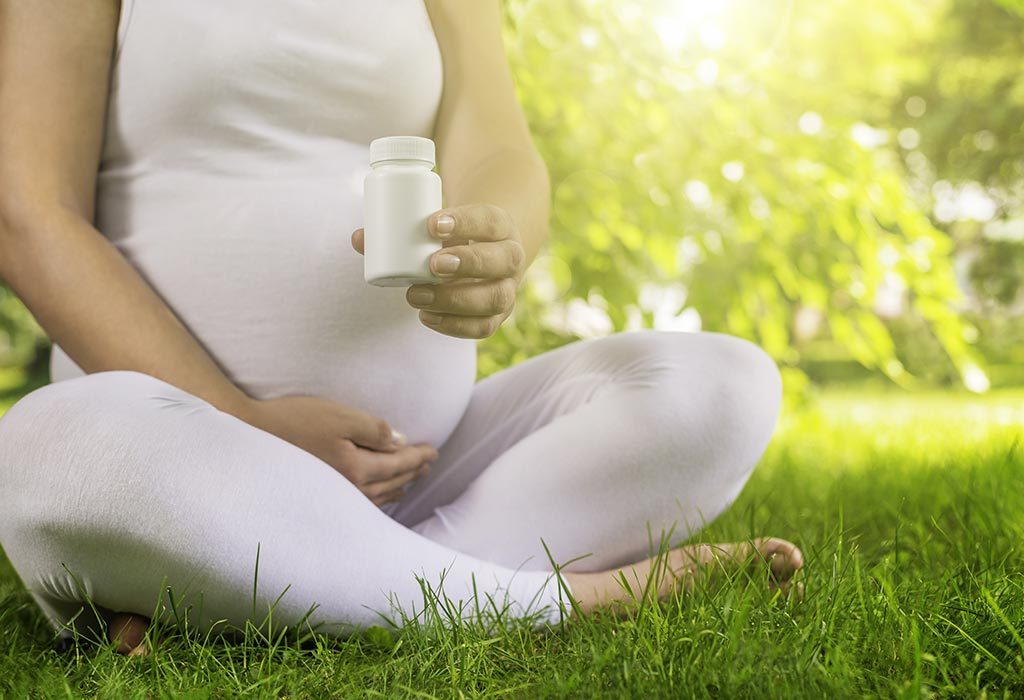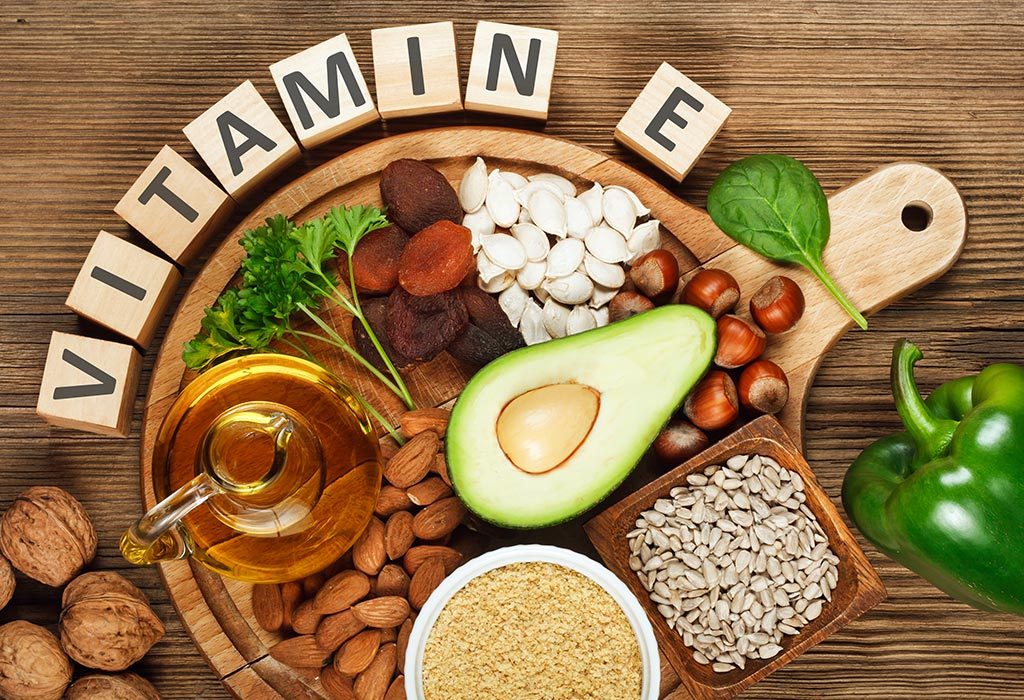In this Article
Vitamin E is a fat-soluble vitamin, also known as Alpha TE or Alpha Tocopherol. There is a major role of vitamin E in pregnancy. It helps in the protection of cells of the body from harmful radicals (reactive oxygen molecules). Expecting women are advised to take Vitamin E supplements if they have:
- High Blood Pressure
- Menopausal Syndrome
- Premenstrual Syndrome
- Complications in late pregnancy
- Cystic fibrosis
- Hot flashes
- Breast cancer symptoms.
Benefits of Taking Vitamin E during Pregnancy

Vitamin E and pregnancy are interlinked to each other. An adequate amount of Vitamin E is beneficial for you and your child.
- Vitamin E acts as an antioxidant and protects the body tissues from free radicals. These free radicals can harm your cells, organs and tissues.
- Vitamin E helps in the production of prostaglandins, which are chemicals whose role is to reduce the amount of prolactin production. Prolactin is the reason for physical and emotional symptoms of PMT. Prolactin is a hormone that increases at the time you are ovulating. Vitamin E helps your body to balance the level of prolactin which in turn aids the female reproductive system to function well.
- Vitamin E maintains the structure of fats (lipids) in your body.
- It also helps in protection against viruses and bacteria by strengthening the immune system.
- It helps widen your blood vessels preventing clotting of blood inside the vessels.
- Vitamin E helps in the formation of RBC (Red Blood Cells)
- It is really good to have vitamin E oil for stretch marks during pregnancy.
- Vitamin E enables your body so that it can make use of Vitamin K.
- Vitamin E is used by the cells in your body to interact with each other and carry out a variety of important functions with coordination.
- Vitamin E helps to reduce the chances of a miscarriage if consumed in the early stages of pregnancy.
Role of Vitamin E in Embryo Development
Here are a few ways in which Vitamin E plays a role during pregnancy.
- Vitamin E plays a major role in the early development of an embryo’s nervous system.
- Vitamin E is very critical for the development of embryo’s eyes and head.
- Vitamin E deficiency can result in poor outcomes in pregnancy for the baby and the mother.
- Vitamin E deficiency can lead to anaemia.
- Deficiency of vitamin E can also result in the risk of increased infections.
- Vitamin E deficiency can result in stunted growth of the embryo.
- Vitamin E deficiency can cause neurological disorders, muscle deterioration, or cardiomyopathy.
- Multiple studies show that children who have a higher concentration of Vitamin E at birth, have a enhanced cognitive abilities at the age of two years.
- Vitamin E improves the blood circulation in the mother. When the blood circulation in mother’s body is good, the blood circulation in placenta will also be good- this implies that oxygen reaches the baby and the baby is in a healthy womb environment.
Recommended Dosage of Vitamin E for Pregnant Women
High Dosage of Vitamin E may cause complications in pregnancy. Therefore, you need to be careful regarding the dosage of Vitamin E that you consume. You can always include the Vitamin E rich food in your diet.
- A pregnant woman should not take more than 15 mg of Vitamin E per day during pregnancy.
- In case you are already consuming multi-vitamin supplements which already contain Vitamin E, you should not take an additional dose of vitamin E unless the doctor prescribes you to do so.
What if you Consume too Much Vitamin E during Pregnancy?
- Consuming very high dosage of Vitamin E supplements can increase the probability of birth defects.
- It can also increase your chances of bleeding with the risk of severe bleeding in your brain.
- Increased consumptions can increase the risk of heart defects in babies.
Vitamin E Rich Foods

- Leafy green vegetables like spinach, broccoli, cabbage, etc are a very good source of Vitamin E.
- Nuts like peanuts, hazelnuts and almonds are also a good source of vitamin E.
- Vegetable oils like sunflower, safflower, wheat germ, corn oil and soya bean are also good sources.
- Fortified food like breakfast cereals, bread spreads, margarine and fruit juices also contain a good amount of Vitamin E.
- Seeds such as Sunflower seeds also contain vitamin E. You can sprinkle the seed on your salad or you can mix them in your porridge.
- Eggs (boiled) are also a rich source of vitamin E.
Can you have Vitamin E Supplements during Pregnancy?
It is recommended not to take Vitamin E supplements during pregnancy. This is because consuming supplements of Vitamin E with other supplements during pregnancy does not aid in preventing the pregnancy-related problems like baby death, childbirth, low birthweight babies, pre-eclampsia or preterm birth. However, it may result in an increase in abdominal pain in women. It might also increase the number of women that have early rupture of membranes at term.
Vitamin E is necessary for your child’s development and your own health as well. The adequate dosage of Vitamin E should be achieved by consuming a well-balanced diet. You should avoid Vitamin E supplements unless recommended by your doctor.









